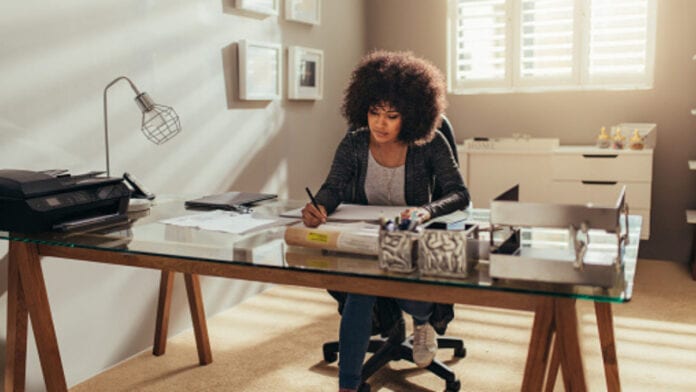
For many years, remote working has been transforming the way that businesses function. With the current crisis ensuring that more of us are working from home than ever before, companies are looking at how this could be of long-term benefit to them in terms of reducing office space, improving staff wellbeing and retention and even slashing the environmental impact of commuting. In addition, many people have taken the exciting step of launching their own business from home.
If you are planning on running a business from home what do you need to know? Simon Roberts, Senior Associate Solicitor, DAS Law, looks at some of the rules you’ll need to consider.
Do I need permission to set up my business from home?
Running a business from your home will spare you the trouble of finding premises for your business, and could make it easier to balance your home life with your work. However, there are a number of extra rules that you will need to consider, depending on what sort of business you are running.
You will need to consider who you will need to obtain permission from to run a business from your home. For example, if you are renting the property, you will need to check that you are allowed to run a business from the property – this may be prohibited under the terms of your tenancy agreement. If it isn’t mentioned in your tenancy, you should still get permission from your landlord.
If you have a mortgage on your home, you may need permission from your mortgage provider.
If running a business from your home is unlikely to cause any disruption or be noticeable to your neighbours or anyone outside the property, it is unlikely that you will need planning permission. For example, if your business is largely run by you alone from the computer in your office, this is unlikely to affect anyone.
However, you may need planning permission if your business will require or cause any of the following:
- Significant structural changes to the home;
- Noticeable increase in people coming to the home (customers, for example);
- A sign outside to draw attention to the business;
- Storage of things related to the business on the outside of the property; or
- Any other activities that wouldn’t be expected in a residential area.
You should talk to your local council or planning office if you have any doubts over whether or not your business will need planning permission.
How does working from home affect my tax?
If part of your home is used exclusively for business purposes, you will need to pay business rates on that part of the property – for example, if part of your home is used as a shop, and nothing else.
You may also need to pay Capital Gains Tax on this section of the home if you ever sell the property – for example, if your business premises make up 20% of the property, you will need to pay tax on 20% of the amount you gained from selling the property. This is because homeowners are entitled to Private Residence Relief from Capital Gains Tax if they sell their home (provided it is their only or main residence).
However, bear in mind that these taxes only apply if an area of the home is used exclusively for business. For example, if you are running a business on your computer from your bedroom, or your office can also be used as a living area, you would not need to pay these taxes on your bedroom or office.
How does working from home affect my self-assessment tax return?
If you are a sole trader or part of a business partnership, you can use what are known as simplified expenses if you work for 25 hours or more from home. This means you can pay a flat rate for some of your business expenses, rather than working out exactly how much of your home bills were spent on business.
Doing this, you can claim back a portion of your household costs, such as council tax, heating and internet bills, based on how many hours you spent working at home each month.
What insurance do I need?
It is likely that your home or contents insurance will not cover aspects of your business if you are working from home, particularly if you are storing a large amount of stock or you have customers entering the premises.
If you have customers or other members of the public entering your home, you will need public liability insurance. You will also need employer’s liability insurance if you have employees working on the premises. You should also get business contents cover if you store any equipment or stock that you need for the business in your home.
Disclaimer: This information is for general guidance regarding rights and responsibilities and is not formal legal advice as no lawyer-client relationship has been created.

Help keep news FREE for our readers
Supporting your local community newspaper/online news outlet is crucial now more than ever. If you believe in independent journalism, then consider making a valuable contribution by making a one-time or monthly donation. We operate in rural areas where providing unbiased news can be challenging. Read More About Supporting The West Wales Chronicle
























